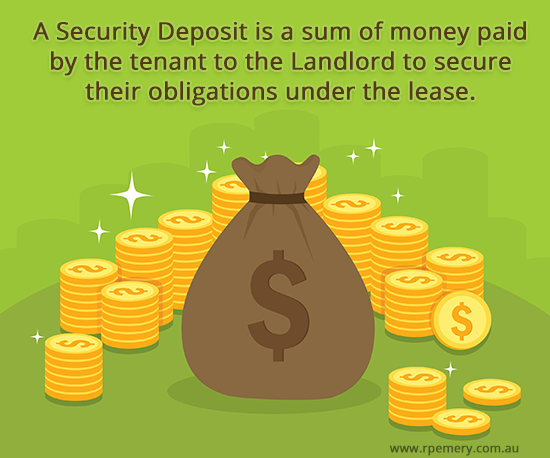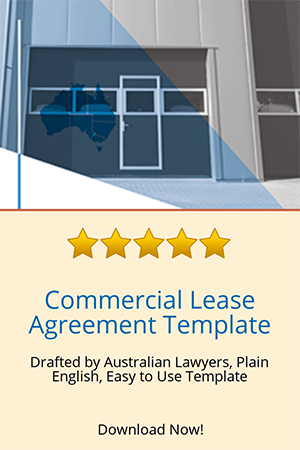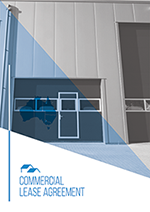The following information applies to commercial premises such as offices, warehouses, factories and so forth. It does not apply to Retail premises.
What is a security deposit (or bond)?
A Security Deposit is a sum of money paid by the tenant to secure the tenant’s obligations under the lease. As a landlord, it is not mandatory to ask your tenant for a security deposit. However, it is advisable to request one for the sake of your own protection.

If your tenant fails to pay the rent or breaches the lease in another way (such as by damaging the premises), then you will be able (under the terms of your lease) to draw on the security deposit to cover any loss or damage caused by the tenant as a result of the tenant’s breach.
The dollar amount of a security deposit is not regulated by law. Instead, you should attempt to negotiate a fair figure with your tenant. As a rule of thumb, a security deposit will vary between the sum of three to six month’s rent – depending on the tenant’s business experience and financial position.
You also have the right to ask the tenant to top up the bond to the original amount.
When do you need to collect/lodge?
Collect the bond before you allow the tenant access to the premises. If you give the tenant possession without first collecting the security deposit, they will quickly lose motivation to pay it to you.
Your lease gives you the right to ask the tenant to ‘top up’ the bond amount, should you draw on the bond at any time throughout the tenancy.
How do you do it?
In commercial lease transactions, the landlord may hold the security deposit in a separate interest-bearing trust account. The landlord should open a separate interest bearing account in which to hold the bond.
The terms of your lease will govern how and when a landlord may draw on the security deposit, and other rules relating to the use and management of the security deposit.
Under the lease terms, the tenant is entitled to the interest earned on the bond amount. However, the landlord may use the interest as part of the deposit.
Unlike residential tenancies, there is no requirement to lodge the bond with a solicitor or government stakeholder such as a bond authority.
What can I collect instead of a security deposit?
As an alternative to a security deposit, you can accept a bank guarantee. A bank guarantee is an assurance that the bank will cover the amount involved in a transaction on behalf of the tenant if they fail to perform their obligations under the lease. Bank guarantees require security in the form of cash or real estate – which allows the tenant to free up some of their capital
Alternatively, you can take a personal guarantee. A personal guarantee refers to a promise taken on by one individual to guarantee the obligations of another. If possible, this type of guarantee should be accepted in addition to a security deposit.
Article Fact Checked and Updated on the 22 Feb 2022 By Kirra Griffin

Kirra is a lawyer in training, having recently graduated from a Juris Doctor degree at Melbourne Law School. As our resident legal assistant, Kirra uses her specialised knowledge of the law to translate complex concepts into easily digestible information.
Related Articles
How to terminate a commercial lease for non-payment of rent or other breach
 It is a situation landlords hope they will never experience. Their tenant has stopped paying rent and they need to take action to mitigate the damage to their bottom line. We look at what the Landlord needs to do and more importantly how they should do it.
It is a situation landlords hope they will never experience. Their tenant has stopped paying rent and they need to take action to mitigate the damage to their bottom line. We look at what the Landlord needs to do and more importantly how they should do it.
Landlord’s rights and obligations when a tenant seeks to sublet or assign a Retail Lease
 Retail leasing is quite regulated and if your tenant asks to assign the lease or sublease the premises there are particular actions you should take. We’ve put together a handy table that breaks down the Landlords obligation for each Australian state.
Retail leasing is quite regulated and if your tenant asks to assign the lease or sublease the premises there are particular actions you should take. We’ve put together a handy table that breaks down the Landlords obligation for each Australian state.
Info graphic – Expenses you can claim for your Rental Property
 If you own a Commercial rental Property you can claim the following list of expenses as a tax deduction as long as the expenses were incurred during the period your property was rented or available for rent.
If you own a Commercial rental Property you can claim the following list of expenses as a tax deduction as long as the expenses were incurred during the period your property was rented or available for rent.
Commercial Lease Agreement Template Kits for Each Australian State
 This easy-to-use template kit contains everything you need to successfully lease your commercial premises. It contains the commercial Lease Agreement Template, Easy-to-follow Users Guide and Agreement to Lease
This easy-to-use template kit contains everything you need to successfully lease your commercial premises. It contains the commercial Lease Agreement Template, Easy-to-follow Users Guide and Agreement to Lease
Retail Lease Agreement Template kit
Our Retail Lease Agreement kit contains everything you need to lease your shop. It includes a professionally drafted retail lease Agreement and Disclosure statement, a sample disclosure statement and Retail lease plus easy to follow help guide and getting started document.


